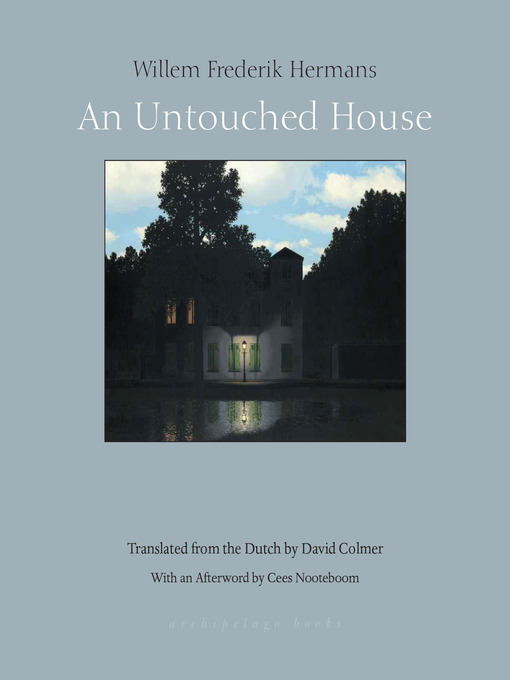
An Untouched House
کتاب های مرتبط
- اطلاعات
- نقد و بررسی
- دیدگاه کاربران
نقد و بررسی

Starred review from August 1, 2018
At the tail end of World War II, a partisan soldier finds a quiet sanctuary that delivers a brutal lesson about humanity at its worst.In his informative afterword to this slim but potent war story, Cees Nooteboom writes that Dutch author Hermans (1921-1995; Beyond Sleep, 2007) adopted the credo of "creative nihilism, aggressive pity, total misanthropy." All of those dark moods are on full display here, but Hermans conjures them so subtly that the full force of his despair doesn't arrive until the closing pages. The narrator is a Dutch soldier in an unnamed patch of Europe making a final push against the Nazis. Assigned by his sergeant to hunt for booby traps, he stumbles across a quiet town and an abandoned house, where he quickly makes his weary self comfortable; it is "the first time in a very long while that I had entered a real house, a genuine home." His solitary domestic AWOL existence doesn't last long, of course: German soldiers arrive, mistaking him for the house's owner, and ask him to take in troops. That opens the question of how complicit in evil we are willing to be for the sake of a soft bed. Quite a bit, Hermans suggests: After the home's owners emerge and his stay is threatened, the narrator is willing to kill to keep his perch: "If the whole world disappears, I won't even notice as long as this house, this grass, and all the things I can see around me stay the same," he selfishly opines. Hermans doesn't deliver an explicit moral judgement on the narrator (indeed, he's sweetly reasonable throughout), but the thundering violence of the closing pages sends its own message. Fire, a suicide attempt, torture, and hanging are all shadowed by men killing with a cynical, mocking cruelty, stressing Hermans' point that dreams of peace can easily become entangled in violence.A dark wartime vision that evokes Koestler, Orwell, and Vonnegut.
COPYRIGHT(2018) Kirkus Reviews, ALL RIGHTS RESERVED.

August 27, 2018
The cruelty and absurdity of war shapes the events of Hermans’s devastating novella, first published in Dutch in 1951. Set in an unspecified locale toward the end of WWII, it is narrated by an unnamed spy, fighting with the Allies, who chances upon an abandoned house not yet ravaged by battle. Settling into it as though it were his own, he contends over several days with billeting Nazi soldiers, the surprise arrival of the house’s true owners, and an eccentric resident in one of its mysteriously locked rooms. “Imagine somebody who doesn’t have a memory, who can’t think of anything beyond what he sees, hears and feels,” he says. Extending these thoughts, he relates the horrors that inevitably engulf the house methodically and dispassionately. Hermans (Beyond Sleep) juxtaposes the randomness of the war’s atrocities with the bravado of one of the Nazis, whose boast that he has ritually shaved at the same time every morning for 40 years proves to be a grotesquely ironic effort to impose order upon a disordered world. This portrayal of a seemingly immaculate dwelling revealed to be “rancid and rotting at its core” is a powerful reflection on an inherently violent world.

























دیدگاه کاربران